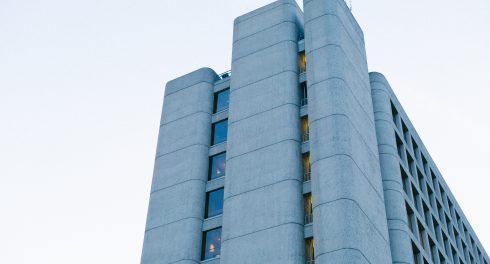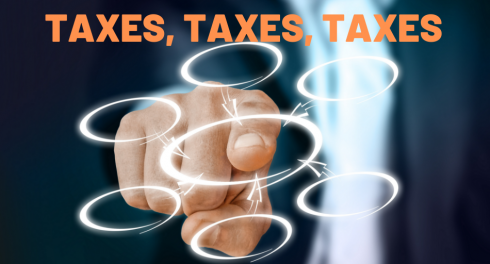
At the Open Society Foundations, we are committed to transparency and continuously exploring better ways of regularly communicating our programmatic and funding strategies to the public. In this two-part blog series, the Fiscal Governance Program (FGP) is delighted to share a summary of our new strategy for 2018-2021. FGP’s budget for FY 2018 is $20.5 million, with a ten-person team based in New York and Washington, D.C. Part one discussed the shifts in context that shaped this new strategy. This blog now lays out the implications for us.
Given the changes in the global landscape, here are seven shifts in our own evolving approach.
- We are merging our work on tax and budgeting into a larger fiscal systems portfolio
Like many donors, FGP has focused on tax governance, policy, and administration as its own separate basket of issues, and likewise, treated issues of open, accountable, participatory budgeting, and more effective and equitable service delivery as distinct problems. We are attempting to remedy this internal silo that we find increasingly problematic in the field itself, and to more explicitly tie our fiscal policy work to tackling poverty and inequality.
Groups working on domestic resource mobilization are often not focused on what happens to the revenue base they seek to increase—despite having poverty reduction as a primary goal. Because of corruption, mismanagement, or simply unchallenged elite spending priorities, new money generated by tax governance advances or more equitable natural resource deals often never reaches the most vulnerable in society and ends up lining the pockets of elites.
Likewise, groups working on more equitable budgeting and service delivery tend to focus on getting more out of the existing (and typically very modest) slice of the fiscal pie, instead of questioning the size of the overall pie and considering ways that resources might be mobilized differently or more effectively to support their aims. Budget groups may focus exclusively on strengthening social entitlements “downstream” without ever paying attention to “upstream” inequities in the tax system that may actually be more powerful drags on poverty reduction and inequality.
With this new fiscal systems portfolio, FGP will focus new energy on supporting partners that look holistically across fiscal systems to assess their performance on rights, justice, and equitable development, and can help bridge unhelpful policy advocacy divides at the country level.
- We will continue investing in multilateral approaches to strengthen government transparency, accountability, and participation
Faced with new leadership vacuums in the global governance arena, we will work to strengthen multistakeholder efforts that transcend borders and are effectively bringing governments, civil society, and the private sector together to solve collective governance challenges. Examples include the Open Government Partnership and the Open Contracting Partnership. We will double down on our support for longstanding initiatives like the Extractive Industry Transparency Initiative (EITI) to generate more meaningful information, oversight, and governance reforms in resource-rich countries. And we will also look to new partners like the B team that are effectively mobilizing private sector allies in areas such as responsible tax practices and closing civic space.
- We will introduce a new portfolio on anti-corruption
Work in this area has been implicit in much of our grantees’ activities to date, including on natural resource governance and financial transparency advocacy. But now is the moment to dedicate explicit energy and resources to fight corruption. Our work here will support partners focused on (1) addressing the ways that the global financial system enables corruption, (2) working transnationally with other civil society and law enforcement to bring grand corruption cases to legal fruition, and (3) developing and promoting forward-looking reform agendas that begin to more systematically address key drivers of corruption in specific countries (our first effort will be in several Latin American countries affected by the Lava Jato scandal in Brazil).
- We will place new emphasis on enabling data usage for accountability at the country level
In partnership with our TAI donor collaborative peers, we will explore who is using the financial data currently entering the public domain (for example, EITI reporting, beneficial ownership registry information, etc…), and how they are using it, and consider what more we can do to enable the uptake of data for accountability and reform among civil society, media, government officials, legislators or independent oversight actors. Decades of transparency advocacy are starting to reap their rewards with an onslaught of data, and we are committed not just to testing the hypothesis of whether this will lead to greater government and industry accountability, but actively working alongside partners in a diverse range of countries to make this vision a reality.
- We have created a dedicated learning portfolio
We will place new focus on enhancing the impact of FGP and our grantees’ interventions, and continue to build the shallow-but-improving evidence base for work in this field. We have a dedicated Monitoring, Evaluation and Learning manager, Megan Colnar, who convened our first MEL Jamboree for grantees in November 2017, and has begun supporting groups like the Accountability Research Center to increase efforts that link partner interventions to real time learning and evidence-building in the field. We are excited to build up this area of work over the coming four years, while taking pains to meet partners where they are at in their MEL practices, and be of service to their own unique efforts to become stronger learning organizations, rather than forcing log frames down their throats.
- We are actively working on how closing civic space is affecting our partners
Together with our TAI donor peers, we seek to better understand the challenges our grantees face related to closing civic space, and will be launching a series of new initiatives to help strengthen their resilience in light of the diverse threats they are facing in the coming months and years.
- We have introduced a major new area of work around trade governance
Trade remains one of the last bastions of extreme opacity and inequity in the economic governance domain—modern trade agreements often encompass much more than tariff reductions. Despite touching on areas such as access to essential medicines, taxation, digital rights, environmental safety, and workers’ rights, trade deals continue to be negotiated behind closed doors, with only industry and their lobbyists in the room, and little-to-no ability for fulsome public debate about social policy concerns. Building on work we started around the Transpacific Partnership Agreement in 2015, FGP will deepen our focus on strengthening more democratic and inclusive approaches to trade governance, particularly in the way that these agreements are negotiated, and the manner that trade disputes are handled.
So, that’s a taste of what’s new. But for those long-time followers of OSF and FGP’s work in the fiscal governance field, you will also notice substantial continuity in many areas of our work.
We will continue to rely heavily on international NGOs to help our team deliver on our global ambitions at scale in Africa, Asia and Latin America. Groups like the International Budget Partnership and Oxfam, for example, have given us the ability to support partners on the ground in Kenya, South Africa, Ghana, India, Cambodia, and beyond with the resources, campaigning support, and technical assistance they need to address a wide range of fiscal governance concerns. Important organizations such as Publish What You Pay, the Natural Resource Governance Institute, and Global Witness will continue to anchor our work in natural resource governance, which has seen tremendous progress over the past 15 years.
We will also continue to cultivate stronger partnerships with local OSF foundations on the ground in these regions, which can help surface important new opportunities and lesser-known organizations. Taking this approach on tax governance and budgeting concerns during the last strategy cycle led us to engage a number of important new partners like Third World Network Africa, Accountability Lab, BudgIT, the African Tax Administrator’s Forum, Public Service Accountability Monitor, and Tax Justice Network Africa. We are excited to see where more intensive collaboration with our OSF colleagues around the world takes us in the years to come.
We will continue to emphasize close collaboration and coordination with our TAI donor peers to help maximize the impact of our interventions and create a collective space for us to reflect on our own grantmaking practices. We are particularly excited about new collective initiatives focused on civic space and increasing the use of fiscal data for accountability at the country level.
A Living Document
Our strategy will necessarily need to evolve over the next four years. As I write we have just emerged from a retreat refining our goals and identifying new connections among our areas of work that demand further reflection. We are also lucky to be part of a foundation that prides itself on taking risks and responding quickly to unfolding and unexpected events around the world. We are always on the lookout for important moments of opening, crisis, or transition that we could not have anticipated, and where our assets can make a difference. Finally, our commitment to learning and adaptation includes our decision to conduct our first independent four-year strategy evaluation, for which we have engaged an external learning partner (FSG) and are currently in the early stages of conducting a baseline analysis to inform the effort.
We’re excited to share our strategy and look forward to providing insights on what we learn along the way.

Julie McCarthy is the director of the Open Society Fiscal Governance Program. Follow her at @julienicmcc


